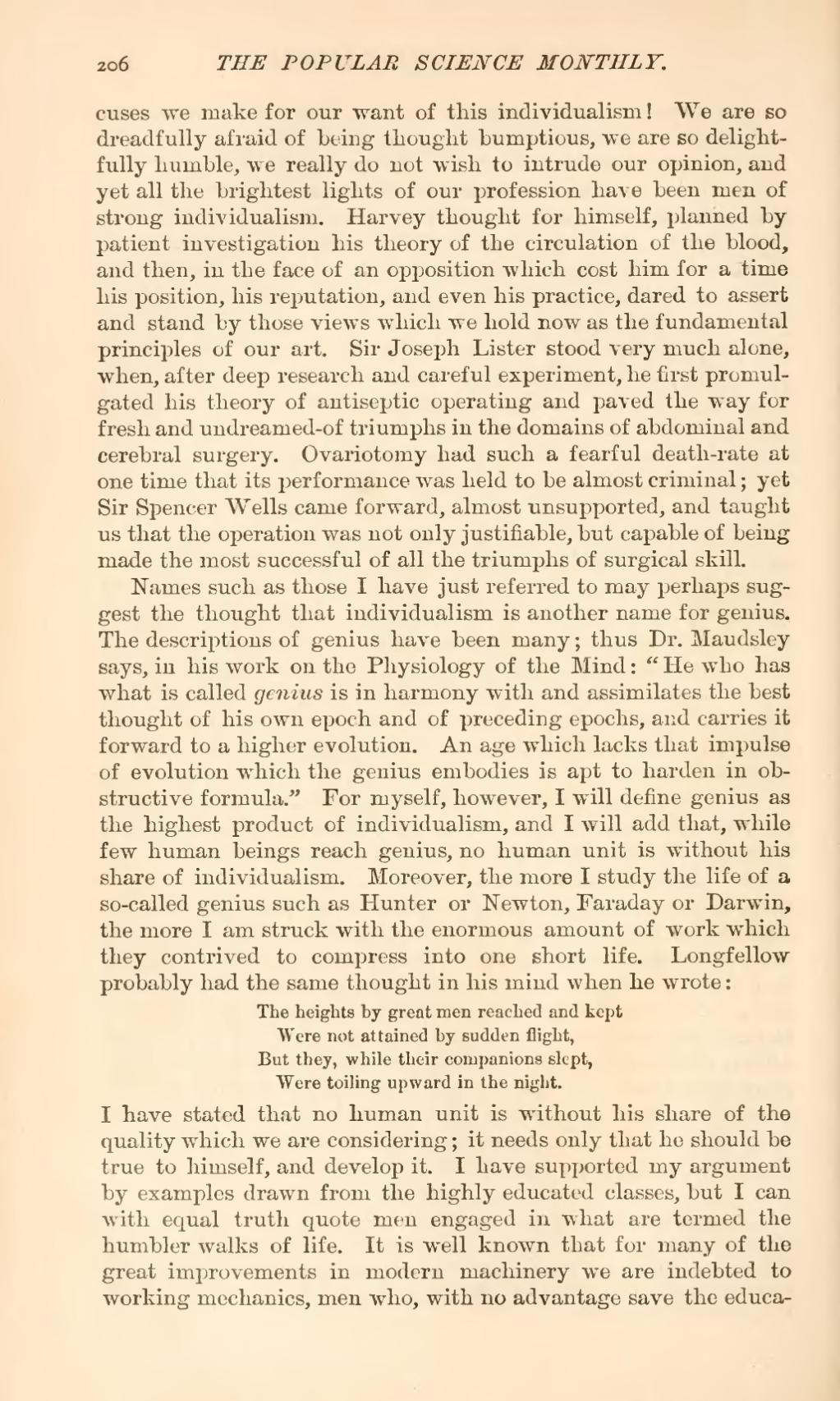cuses we make for our want of this individualism! We are so dreadfully afraid of being thought bumptious, we are so delightfully humble, we really do not wish to intrude our opinion, and yet all the brightest lights of our profession have been men of strong individualism. Harvey thought for himself, planned by patient investigation his theory of the circulation of the blood, and then, in the face of an opposition which cost him for a time his position, his reputation, and even his practice, dared to assert and stand by those views which we hold now as the fundamental principles of our art. Sir Joseph Lister stood very much alone, when, after deep research and careful experiment, he first promulgated his theory of antiseptic operating and paved the way for fresh and undreamed-of triumphs in the domains of abdominal and cerebral surgery. Ovariotomy had such a fearful death-rate at one time that its performance was held to be almost criminal; yet Sir Spencer Wells came forward, almost unsupported, and taught us that the operation was not only justifiable, but capable of being made the most successful of all the triumphs of surgical skill.
Names such as those I have just referred to may perhaps suggest the thought that individualism is another name for genius. The descriptions of genius have been many; thus Dr. Maudsley says, in his work on the Physiology of the Mind: "He who has what is called genius is in harmony with and assimilates the best thought of his own epoch and of preceding epochs, and carries it forward to a higher evolution. An age which lacks that impulse of evolution which the genius embodies is apt to harden in obstructive formula." For myself, however, I will define genius as the highest product of individualism, and I will add that, while few human beings reach genius, no human unit is without his share of individualism. Moreover, the more I study the life of a so-called genius such as Hunter or Newton, Faraday or Darwin, the more I am struck with the enormous amount of work which they contrived to compress into one short life. Longfellow probably had the same thought in his mind when he wrote:
The heights by great men reached and kept
Were not attained by sudden flight,
But they, while their companions slept,
Were toiling upward in the night.
I have stated that no human unit is without his share of the quality which we are considering; it needs only that he should be true to himself, and develop it. I have supported my argument by examples drawn from the highly educated classes, but I can with equal truth quote men engaged in what are termed the humbler walks of life. It is well known that for many of the great improvements in modern machinery we are indebted to working mechanics, men who, with no advantage save the educa-

